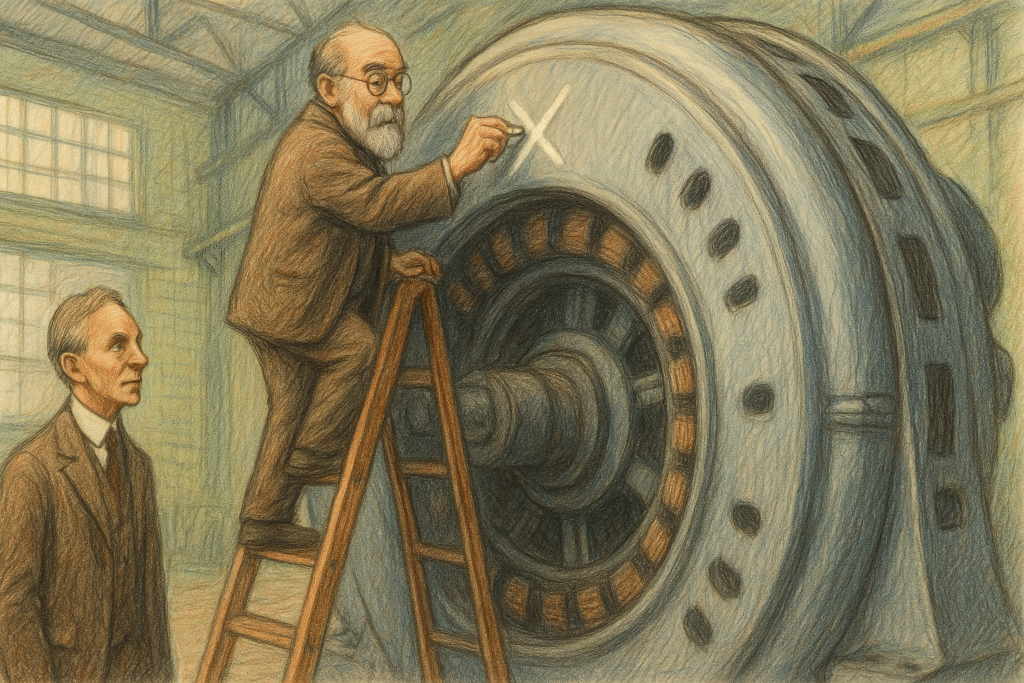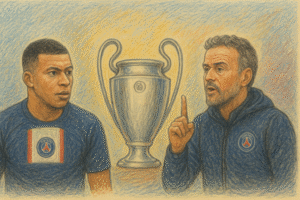The anecdote about the meeting between Henry Ford and one of the greatest scientific minds of his time, Charles Steinmetz (1865-1923), is very famous. Ford called Steinmetz in to his River Rouge plant in Dearborn, Michigan in order to ask him to solve a problem with a gigantic generator that his engineers could not figure out.
According to the story, he listened to the generator and took notes for two full days. At the end of the second day, he asked for a ladder, climbed up the generator and made a chalk mark on it. Then he told Ford to remove a plate at the mark and replace sixteen windings from the field coil. Ford’s engineers did it and the problem was solved.
Steinmetz asked to be paid $10,000 (worth more than $150,000 in 2025) and Ford was totally shocked by the price. “To make a chalk mark costs $10,000?” he asked. Charles replied: “Making a chalk mark on a generator is $1; knowing where to make the mark is $9,999”. So, Ford paid the bill.
Often, the same thing happens in life: we are willing to pay fortunes for things we can see, yet unwilling to sacrifice anything for things we cannot see. The real problem, however, is that we fail to understand—unlike Henry Ford—the value of what remains unseen. Ford recognized the worth of Steinmetz’s wisdom, even though he could not see it at first glance.
If we refuse to accept the fact that some things—invisible to the physical eye—are far more valuable than what we can see, then the “generator of our life’s energy” (if I may borrow the metaphor from the story) will always malfunction.
It is true that the most important things—love, friendship, wisdom, justice, integrity—cannot be bought with money, and paying for them often means cheapening them. Yet, we still sacrifice these invisible treasures for superficial, visible things like success, wealth, or fame, which are far less valuable.
The reality is that, while lacking these external things may hinder our wellbeing, a life devoid of the unseen—the intangible—loses all meaning. Comfort alone does not give life purpose, whereas those invisible values are essential for a life that functions well and feels meaningful.
The trouble is, the unseen things—like the wisdom of knowing where to make a mark—often cost far more than what money can buy. Charles Steinmetz worked hard to use his sharp intellect wisely. Spending two full days listening to a generator, for instance, was no small sacrifice. Yet, too often, we are unwilling to make the sacrifices demanded by a life devoted to love, justice, truth, and the like, so we end up going after trivialities, things that money can buy.





